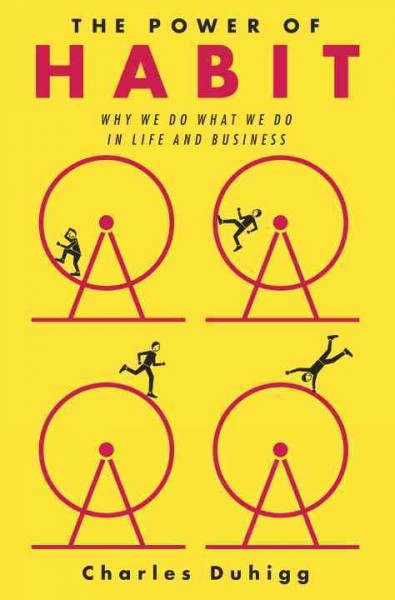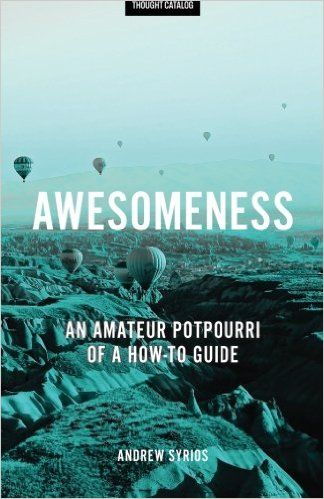|
From SwitfEconomics:
Charles Duhigg certainly bit off a large bite for himself, and did a mostly very good job of chewing it. The Power of Habit is a fascinating book that looks into how we develop habits and how those habits affect us at individual, organizational and societal level. The most interesting part is the beginning where he tells the story of Eugene Paulie, a man whose brain had been severely damaged by encephalitis and had lost all of his memories, including his ability to remember anything after more than a few minutes. Yet the man could still speak and do all the tasks he had learned throughout his life. In fact, he could even walk around the block and find his way back home. Cues would tell him it was time to eat and if it weren’t for the intervention of his wife he would eat five or six meals a day. What this helped lead scientists to was that habits are not memories. They are more similar to instincts, but instincts we learn or adopt. Basically, they are automatic processes that takeover when we receive whatever cue, and it culminates in some reward that solidifies the habit. While the processes are complicated, they mostly reside in the basal ganglia, the very center and most primitive part of the brain (the brain effectively evolved on top of itself with the most advanced parts on the outside, such as the prefrontal cortex). This has all sorts of important implications especially with regards to addiction and how we judge individuals behaviors. How much of what people do is under their control? Unfortunately, Duhigg’s dicsussion of this is the weakest part of the book. He compares the case of a woman named Angie Bachmann who won the lottery and then became a gambling addict and gambled away her entire fortune, and then proceeded to gamble away her entire inheritance., with a man named Brian Thomas who accidentally murdered his wife while having a sleep terror. Sleep terrors are quite different from sleep walking as sleep walking is usually just going through random habits, while sleep terrors involve going into a highly anxious, primitive neurological state. The night he killed his wife, they had seen some hoodlums causing trouble, so they moved their RV. That night he had a sleep terror and while dreaming that those hoodlums were attacking him, he strangled his wife to death while unconscious. The woman was held responsible for her debts while the man was acquitted of murder. Duhigg sums up our society’s motives as follows: "…there is one critical distinction between the cases of Thomas and Bachmann: Thomas murdered an innocent person. He committed what has always been the gravest of crimes. Angie Bachmann lost money. The only victims were herself, her family and a $27 billion company [the casino she gambled at] that loaned her $125,000. "Thomas was set free by society. Bachmann was held accountable for her deeds." (pg. 268-269) There are a lot of interesting questions with regards to the legal and moral ramifications of neurological science, but this is a horrible comparison. Right off the bat, the difference between criminally punishing someone and civilly holding someone accountable for a debt they incurred is enormous. Thomas was literally unconscious when he attacked his wife. And while he had had night terrors before, he had never done anything even remotely violent and there was no real reason to think that he would. The question with regards to Thomas is should someone be held liable for what they do while unconscious. Bachmann was conscious while she gambled. So the question for her is should someone be held liable for something they do while habitually addicted. They’re two very different questions, and if we do drop Bachmann’s culpability because she was a gambling addict, do we thus drop the liability of someone who drives drunk and kills someone in a car crash because they were an alcoholic? This is especially true since one of the important lessons of this book--which is touched on throughout and elaborated upon in a very good appendix--is that habits can be changed. Yes, we do things by habit without thinking about them in what is effectively an instinctual sort of way. And yes, changing them is difficult. But yes, they can be changed. Each habit is three steps: 1) Cue, 2) Routine and 3) Reward. The key is to isolate them. He describes the steps experts agree on taking: – Isolate the routine -Experiment with rewards – Isolate the cue – Have a plan (pg. 276) What’s important is to change the reward to something positive (i.e. eating an apple) instead of something negative (i.e. eating a cookie). But of course, one has to figure out exactly what the reward really is. It may be the longing to have a break rather than eat something and the cookie is incidental. Thus, the experimentation. In the book, Duhigg also goes into the habits of organizations and societies, particularly societal movements. This part is good too, but is more anecdotal than empirical. Still, the story of Starbucks and Alcoa almost obsessively emphasizing respectfulness and safety respectively, and the discipline and success that came from that, is quite compelling. Despite some minor flaws, The Power of Habit is still a fascinating and well written book on an extremely important topic. Much of what we do is through habit, not conscious thought. The better we understand and thereby learn to control our habits, the better we will all be for it.
Comments
|
Andrew Syrios"Every day is a new life to the wise man." Archives
November 2022
Blog Roll
The Real Estate Brothers The Good Stewards Bigger Pockets REI Club Meet Kevin Tim Ferris Joe Rogan Adam Carolla MAREI 1500 Days Worcester Investments Just Ask Ben Why Entrepreneur Inc. KC Source Link The Righteous Mind Star Slate Codex Mises Institute Tom Woods Michael Tracey Consulting by RPM The Scott Horton Show Swift Economics The Critical Drinker Red Letter Media Categories |

 RSS Feed
RSS Feed


